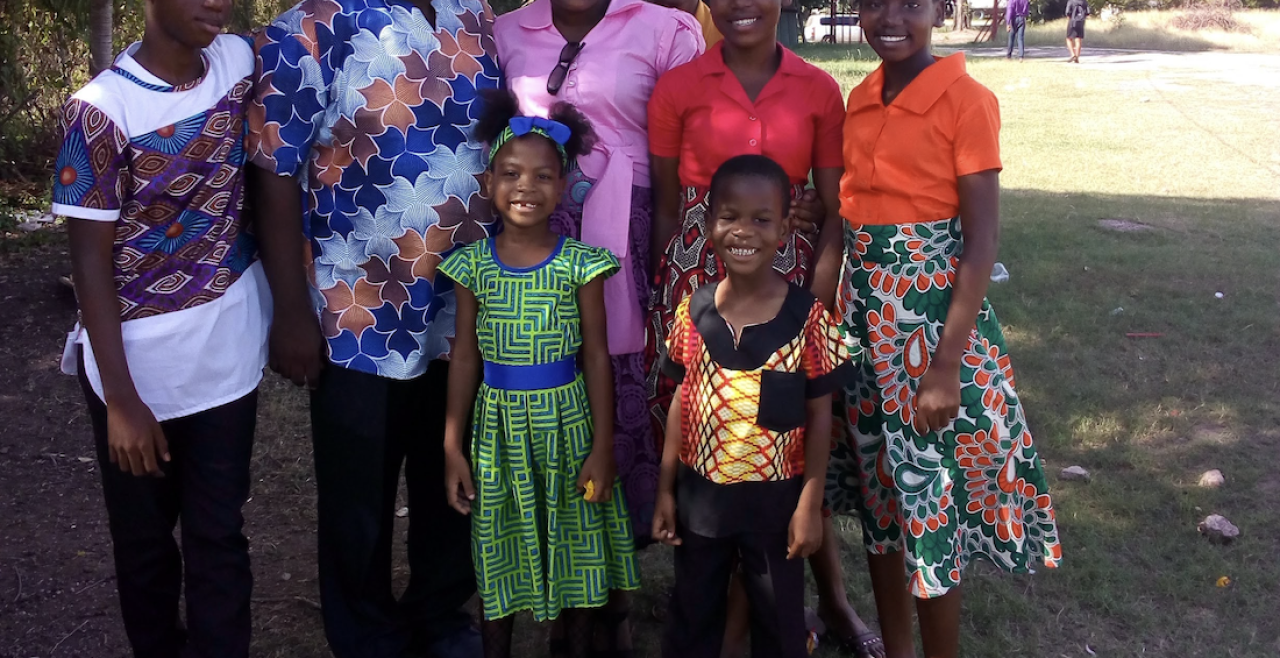'I help parents prevent family violence' - a Jamaican activist on unlearning harmful behaviour

KINGSTON, Jamaica - At age 12, I learned a lesson about violence when I became a babysitter in my extended family. Growing up, I had already learned that the way to discipline was to beat, and so with my brothers, sister, and cousins, that was what I did. But then one day one of my brothers fought back and said, “Wait, when we get older, we are going to kill you.”
Reflecting today, I am of course glad that it never came to that – and that later in life I got to apologize to my siblings. Many of us don’t realize how close we are to becoming perpetrators of violence, or that we might already be, or what terrible things that our upbringings can lead us to do.
When you see the news, the reports of family violence are so appalling you really see the need for something to help resolve things differently. My role as a community facilitator for Children First in the Spotlight Initiative is to train families on how to improve how they relate to each other to help prevent situations becoming violent.
The realities of inter-generational violence
With the Spotlight Initiative I am happy to be on a pathway to recruit families and I am not afraid to go into any community to try and help them become better mothers and fathers, and that includes me as well. We hope for families to recognize that there are other ways to correct their children, to mentor and to nurture children.
Really it is about engaging them in discussions and bringing out from them what they know deep down is right from wrong. Parenting it about how best to deal with a situation, like how to deal with a child who is “rebellious”. We were all brought up with “if you spare the rod, you spoil the child,” but beating doesn’t work and that is something that I have realized over the years, including in my day job where I work as an Agriculture and Integrated Science teacher.
Many of the interactions I see between my male and female students I can recognize as inter-generational, passed down from parents and older siblings or relatives. So, for instance, some male students like to do what they say is a “gentle hit”, but which is felt with greater force. Most female students are uncomfortable with this.
Child abuse: If you see it, if you hear it, report it. (Click link)
Demonstrating non-violent approaches
I have a male student now, and I have seen it more than once, where a girl is verbally abusive, and his response is to use physical abuse. The male student will claim that he was not hurting her, and so I must explain to him that physical approach is wrong. Likewise, I also must explain to the female student that her language is verbal abuse.
In situations like this we must explain to students what is appropriate and how they can relate to one another to resolve or avoid conflict, which of course might be the opposite of what they have taught at home or in the community. This shows how important it is for interventions to be made available in both the school and home environments.
Our boys and girls need to be given the skills to relate to each other better, but sadly that it is not always what is being passed down to them. All of us can question our own approach and indeed I as a father have had to change mine to ensure I listen more.
Children must be allowed to speak up
Children are not only receivers in the communication process. They must be listened to and given answers in a manner that they are able to understand properly. I no longer hold the view that they must be seen and not heard. They have a voice too!
I must say that the Spotlight Initiative has made me more aware of the impacts of family and gender-based violence and therefore, I will continue to share what I have learned in formal and informal discussions to bring about the needed change.
Better men and women should work to be better parents, who will ultimately lead to a better society. I am now trained and equipped with my Family Focus Guide from the Parenting Partners of the Caribbean to facilitate families in formal and informal discussions. My thanks go to the Children First Agency for giving me the opportunity to express myself.
I am still a work in progress. I will have to apply the strategies to myself and accept feedback to improve as I go along. The project provides counselling for facilitators, which I welcome to deal with any underlying issues I might have. We must be conscious that even a doctor should not treat him or herself and therefore if we need any help, we should not be afraid to get it.
By Ricardo Brown. First published on UNICEF.
About the Spotlight Initiative
Under the Spotlight Initiative – a global, multi-year partnership between the European Union and the United Nations to eliminate all forms of violence against women and girls – Children First through UNICEF, is training 50 community facilitators, like Ricardo, to promote positive parenting. Facilitators focus on preventing family violence and violence against women and girls and enabling them to become catalysts for change. Facilitators are trained to conduct parenting groups and individual sessions in St. Catherine and St. Thomas, guided by a curriculum created by Parenting Partners for the Caribbean. The goal for the facilitators is to train a total of at least 500 parents/caregivers.
